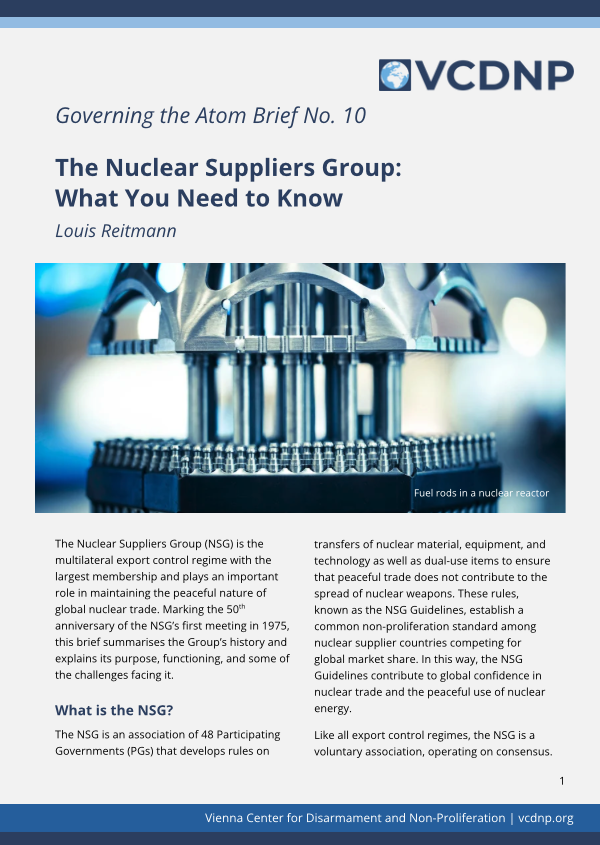Following India’s first nuclear test in 1974, seven major nuclear suppliers met in London to discuss ways to strengthen the young non-proliferation regime established by the Treaty on the Non-Proliferation of Nuclear Weapons (NPT). Later known as the Nuclear Suppliers Group (NSG), its Participating Governments developed shared standards for exports of nuclear material as well as nuclear and dual-use items and technologies – the NSG Guidelines.
50 years after its first meeting in 1975, the NSG is the multilateral export control regime with the largest membership. Its Guidelines have come to be recognised as the global standard for nuclear export control. They play an important role for maintaining the peaceful nature of nuclear trade, implementing the NPT, and supporting global confidence in the peaceful use of nuclear energy.
The NSG has also gained importance for many countries that do not participate in the Group but adhere to its Guidelines to prevent the proliferation of nuclear weapons in an age of complex, globalised nuclear supply chains, and to fulfil their obligations under UN Security Council Resolution 1540 (2004).
In this new brief in the Governing the Atom series, Research Fellow Louis Reitmann provides a succinct overview of the NSG’s development, its bodies and structure, the NSG Guidelines, and adherence to the NSG Guidelines by third countries. The brief also highlights some of the principal long-term challenges facing the NSG, such as the admission of new Participating Governments, the interpretation of the Guidelines, relations with third countries, and the sharing of information between Participating Governments and with the International Atomic Energy Agency (IAEA).
The Governing the Atom brief series presents easily digestible and factual information to experts and government representatives on critical nuclear governance issues and aids States in their decision-making on critical issues related to working with international organisations and regimes.


